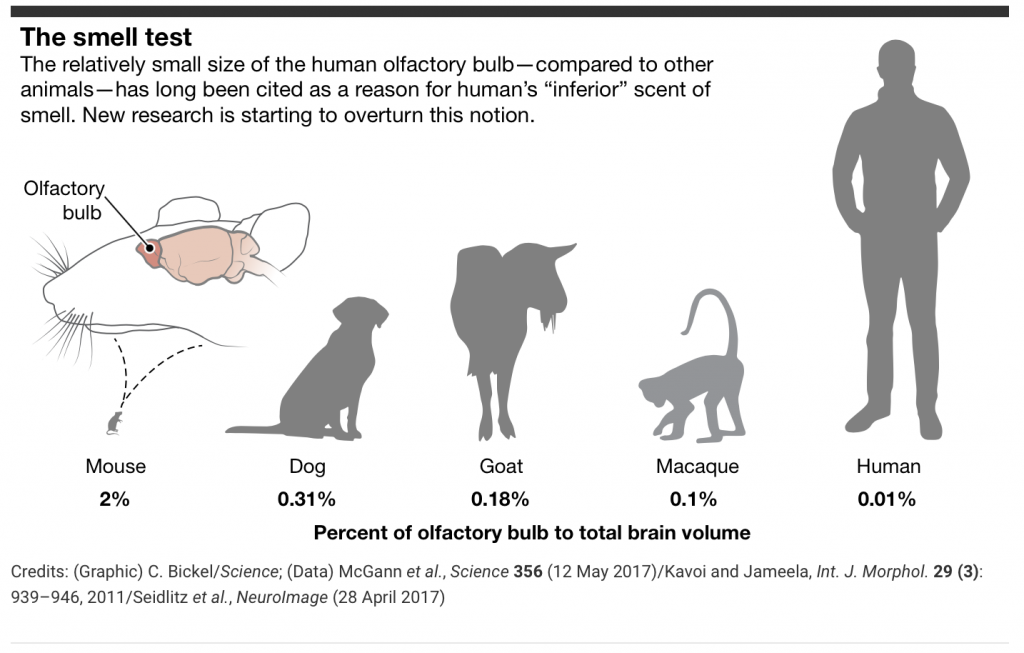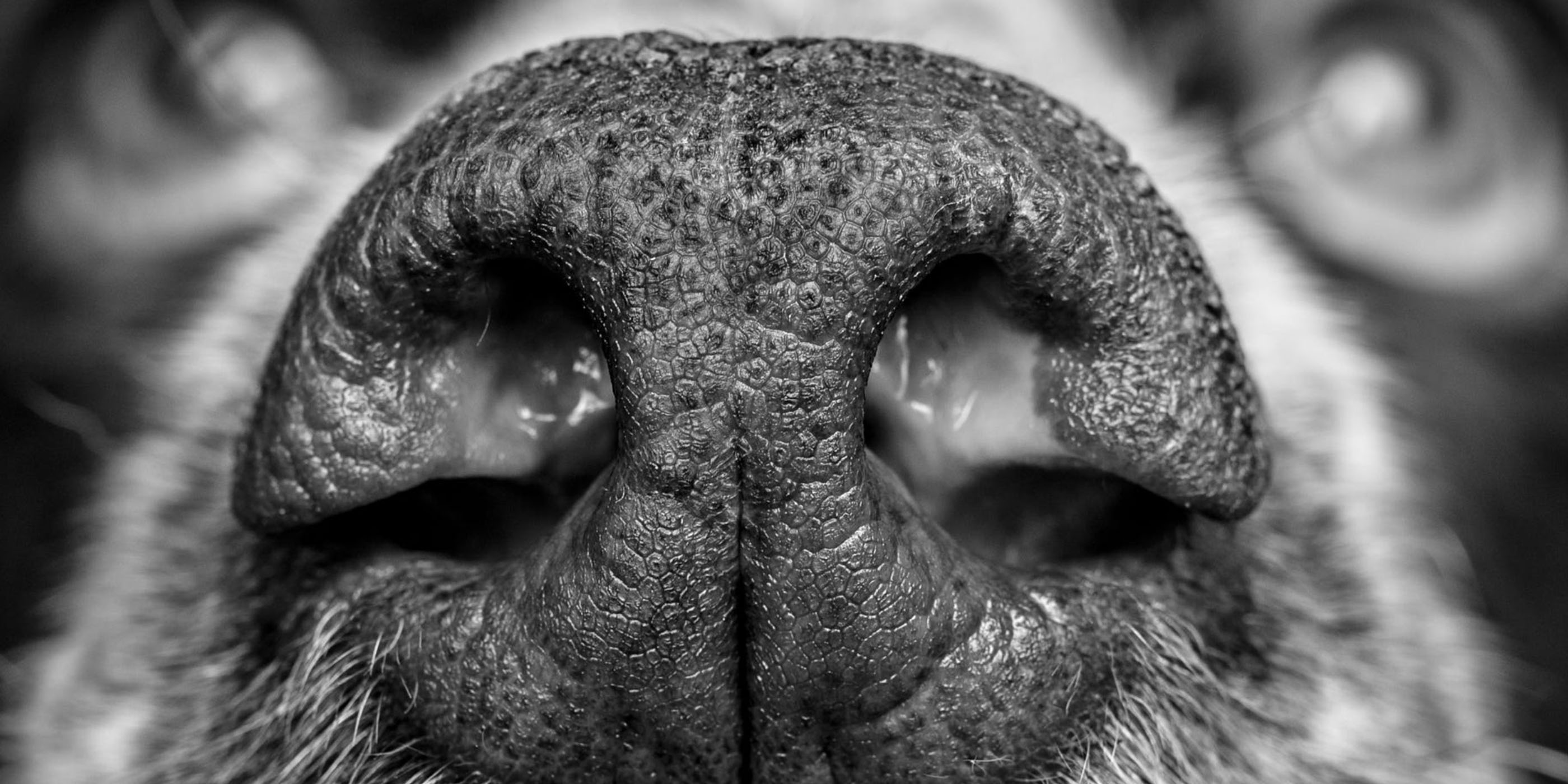By Stephanie Helmer
Posted in Education | Tags : Human smell
Human sense of smell is not as bad as we think. Even American neuroscientist John McGann of Rutgers University, New Jersey, argues that the myth of the nonessential nose is a huge mistake. The human sense of smell does not subside that of mice, rats or dogs. In relation to a dog or a mouse, the human olfactory system (olfactory bulb) does not take up so much space. The difference in the sense of smell is not so much quantitative but especially qualitative, according to Mc.Gan
This myth about human sense of smell started in the nineteenth century. The famous French anthropologist and neuro-atomist Paul Broca published about the olfactory bulb, two grape-shaped thickenings on the underside of the large brain. This is the first stop before the olfactory signals enter the brain, also compared with a switch box. From the olfactory bulb, the olfactory pathways and other nerve connections run deeper into the brain. When we look at this part of the brain we can say that it is relatively small in humans in relation to the rest of the brain.

From the anatomy point of view we can not blame Broca. Finally, he makes no clear statement about the ability to smell well. However Broca successors gradually increased the misunderstanding. For example, the Austrian Sigmund Freud stated that smells caused instinctual sexual behavior. The need for children and to sniffing things, Freud saw as something primitive and animal. So it was good that the sense of smell of a person was not so developed. In other words; a bad nose brought man civilization.
When we lay the smell system of man next to that of a rat or a mouse, we do see that the human olfactory system is twice as big as that of a rat and preferably six times the size of a mouse. McGann argues that the size of the olfactory system says nothing about a better or worse smell. According to him, it is better to count the number of nerve cells in the olfactory bulb, which is strikingly constant for various mammalian species. The number of smell neurons of a man is slightly less than that of a mouse, while the olfactory neurons of a woman are higher than those of a guinea pig. Which in turn scores higher than a mouse. Genetic studies show that a human in his DNA has no less than a thousand genes for olfactory receptors, but that only 390 are active, where a mouse has much more active receptors. According to McGann, the detail of human perception is in the further processing of the olfactory information. Many incoming signals are linked to memories and emotions, a process that happens largely unconsciously. Awareness is thus the beginning of a better sense of smell.
Source: NRC & Science Magazine




Comments are closed.